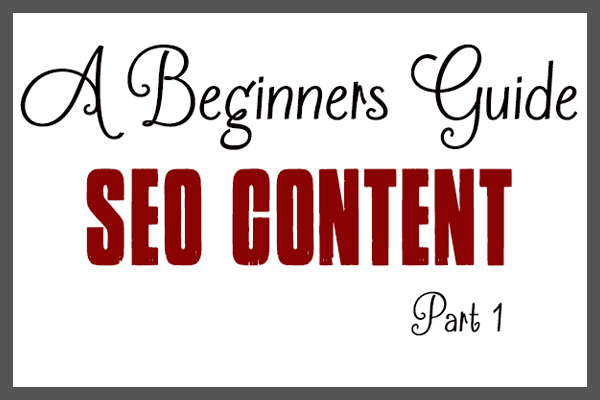What is SEO? SEO stands for “Search Engine Optimization.” Basically, SEO is the process of optimizing your content, and especially your website, to be easy to find on search engines such as Google, Bing, and/or Yahoo.
What is content? Content can refer to any information that can be found and consumed on the Internet. This can refer to your company blogs, your social media, or even the ‘home’ page and/or ‘about’ page of your website.
What is SEO content? When you combine these two terms you refer to any information on the Internet that was created with the express purpose of attracting search engine traffic. This blog you’re reading is a piece of SEO content.
Creating excellent SEO content is not easy, but it’s also not impossible or beyond your reach. But where do you start? There are four key concepts to keep in mind when successfully crafting SEO content.
- Keyword Research: If you want new clients/customers to find your website through search on Google, then you need to start writing your content only after your own keyword research. In this way, you can make sure that the content you create is the type of content someone would search for.
- Let’s say your company sells shoes. If you’re a small company, trying to create SEO content for the word ‘shoes’ is not going to be successful. That’s a big ocean and you’re just a small fish. Instead, you need to get specific. Where is your company located? What type of shoes do you specialize in? Is there anything in particular about your company or your shoes that stands out? Let’s look at this again…
- You’re a shoe company located in South Florida. You specialize in fancy flip flops for special occasions and you stand out with your beach wedding footwear. Now, you can create some SEO content. Do a quick Google search and then for your website, blog, and/or social media craft content with the phrases: bridal flip flops, wedding flip flops, beach wedding shoes, wedding sandals, south florida flip flops, Ft Lauderdale flip flops, Miami flip flops, etc.
- Keyword Optimization: It’s not enough to just find and use the correct keywords, you have to use those keywords in the right way. The Moz Blog offers a great and detailed article on just this topic. As you can probably guess, page titles, headlines, body text, and URLs are just a few of the important content areas.
- Content Organization: You can’t just slap content up and hope it sticks. Considering a lot of search engines still use bots to find keywords, you need to be sure that you organize your content in such a way that it’s easy to find and read. You also need to make sure your content sticks around for a while. Keep your blogs up and searchable. Don’t modify your home page every five seconds. It’s important that your best SEO content is always right there, easy-to-find.
- Content Promotion: Your SEO content is not going to do you much good unless you actually get it out there. When you write a blog on your website, share that blog across all your social media platforms. This is especially important with social platforms like Google+, which have a large impact on Google SEO. Even if you don’t write blogs, make sure other online articles and social content links back to your website, whether it’s your home page or services section.
Stay tuned for Part 2 to learn the types of SEO content.





















